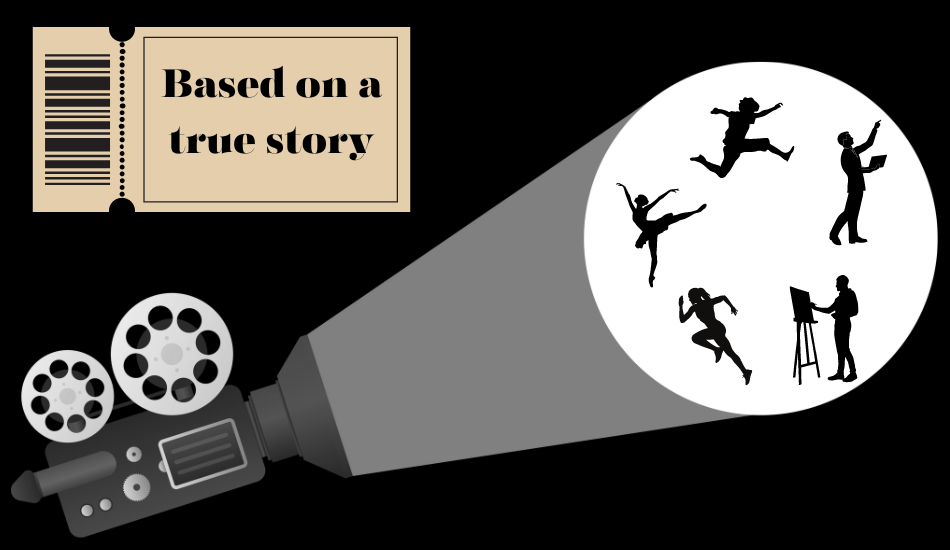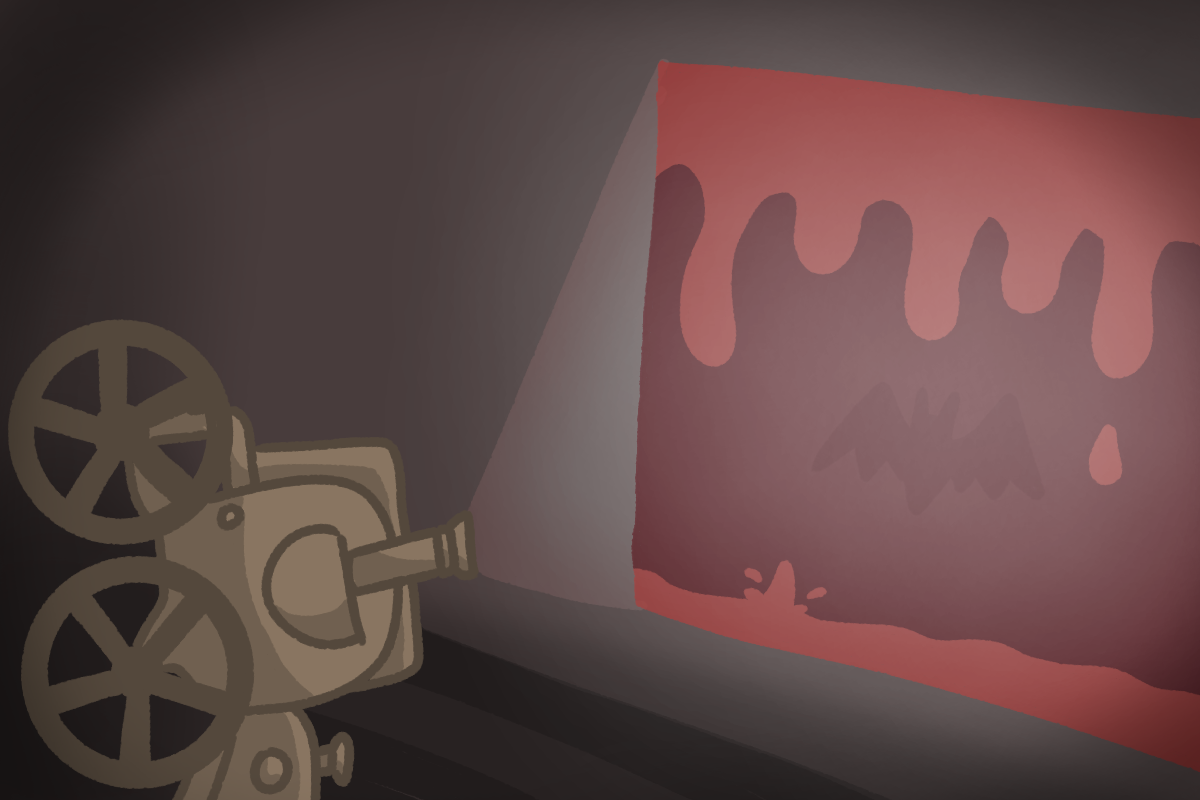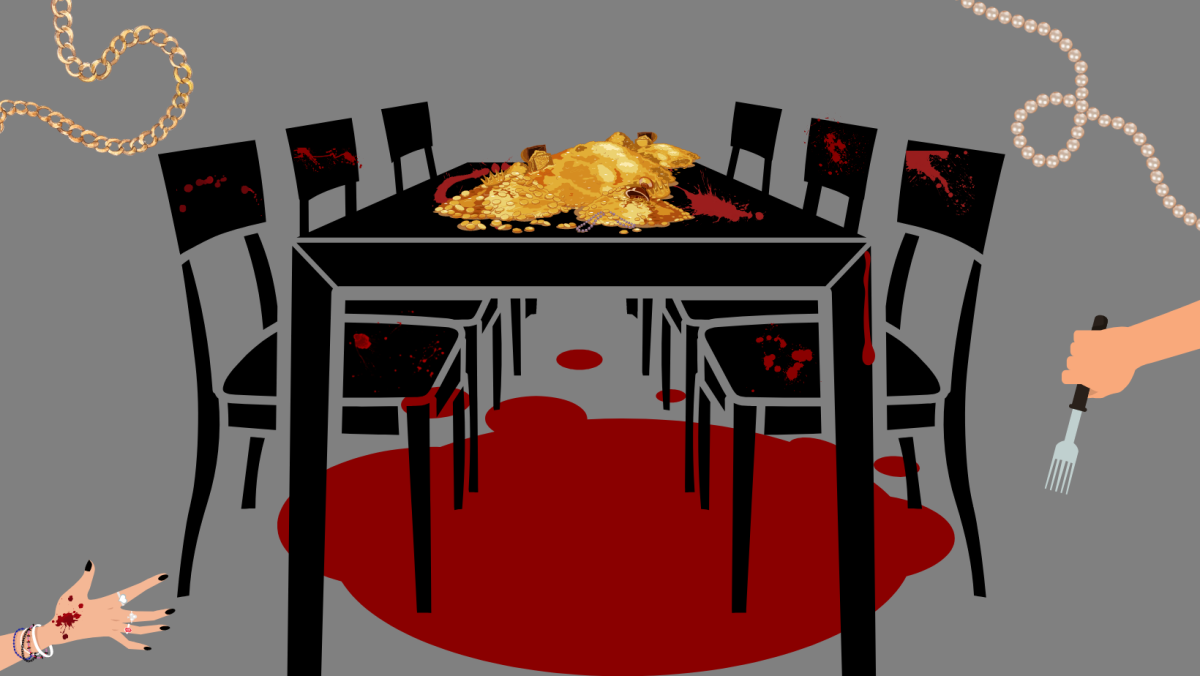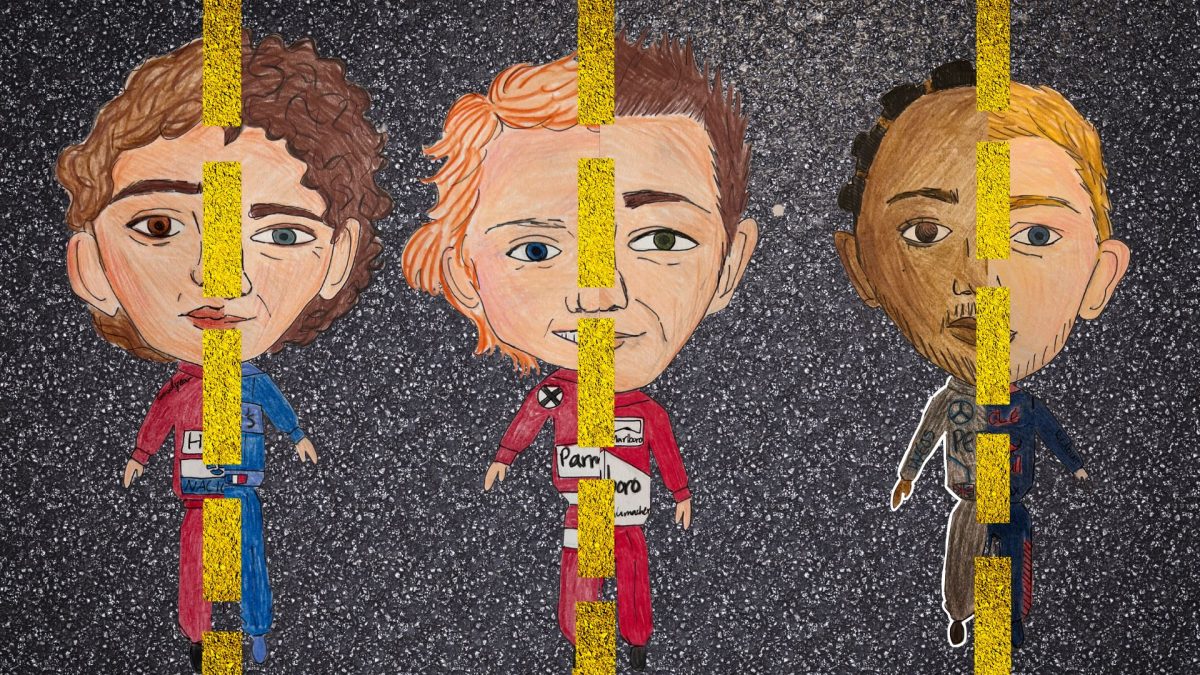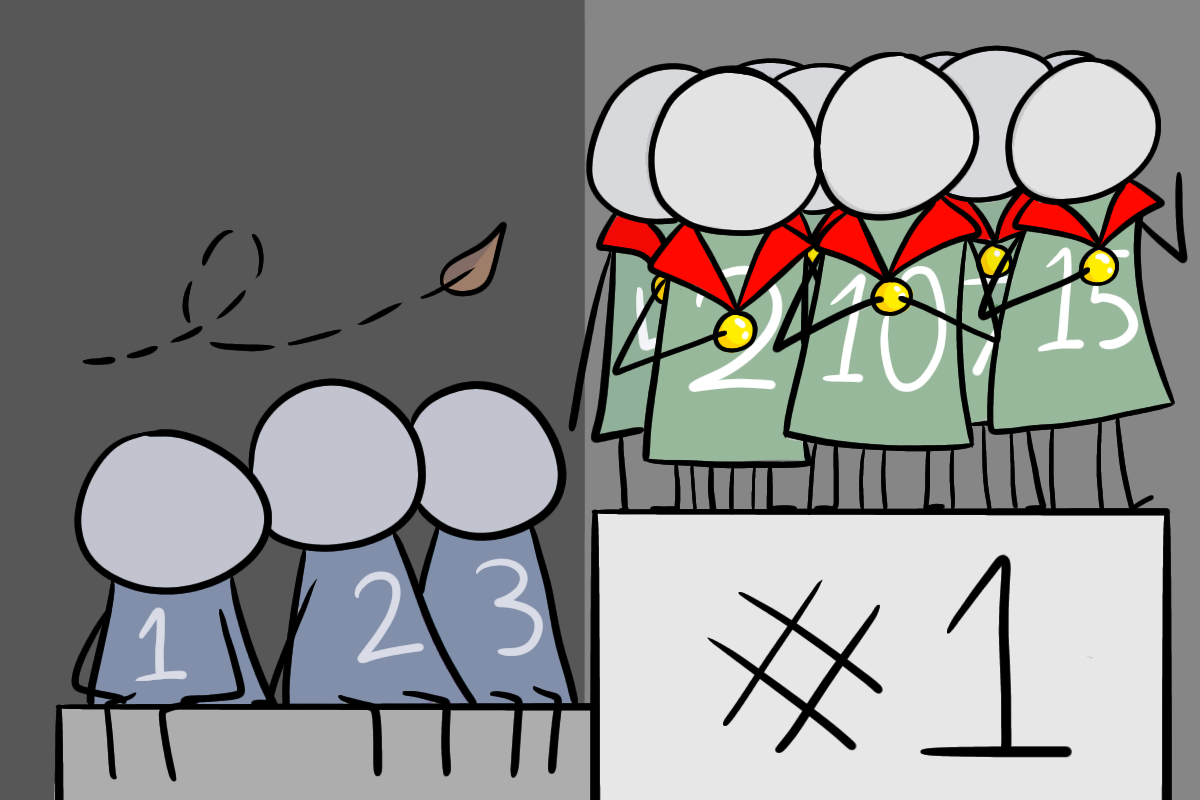What’s really disturbing is the fact that I once had to sit through “American Psycho” with my father on the couch next to me and act like I didn’t see Christian Bale stark naked and flexing in the mirror while busying himself with—well, you know.
If you were to ask me what the purpose of explicit scenes in media is exactly, I can assure you my answer wouldn’t be “to arouse the audience.” It takes a special kind of nerve to be able to fight against the awkwardness of watching two of your favorite Hollywood actors go at it, parent on the couch or not.
Does this mean I think sex scenes are unnecessary? I think that question itself is up for interpretation. When people usually disapprove of explicit content in media, their main complaint will go one of two ways: they say it’s a shameless attempt to pander to the audience, or it is purely a self-indulgent fantasy of the creator.
But either way, does it really matter? In the end, cinema is just another form of art. And isn’t the purpose of art to capture people’s attention while also expressing the artist’s inner self?
Who gets to define art? Who decides what art is supposed to accomplish? Who determines what is art in the first place?
Art as a concept can be agreed by the majority to be universally abstract— it is a form of communication in which everyone speaks in different languages at once. It is a paradox people enjoy arguing over. Art can push boundaries, inspire thinking, leave us vulnerable or just entertain all at once. Art is whatever the artist chooses. Centuries of evolution show how many forms art can take: drawing, photography, writing, theatre, music, etc. We, as humans, can’t exist without it. It is how we identify ourselves.
At the same time, it feels a little silly to consider something like “Fifty Shades of Grey” as art. So, as the saying goes, “It’s all relative!”
There are some who may argue that there is no purpose to sex scenes as they do nothing to add to the story, and they would have a point. There are a number of examples in which it’s clear that a sex scene has no real relevance to the actual plot and could be taken out or simply replaced with a “fade-to-black” scene without making much of a difference to the story. However, there are also directors who are able to utilize such scenes in order to help the narrative.
Although Bong-joon Ho’s psychological thriller “Parasite” received high praise internationally and garnered excellent reviews, people were quick to bring up how they felt that the infamous couch-sex scene felt out of place and questioned whether it should have been included. To which Bong replied that the scene helped put emphasis on social disparities between the rich Park family and the poor Kims. As the married Park couple becomes intimate out in the open, on the couch, the Kim family lay hidden under the table, forced to be a part of such intimacy, further making obvious the clear class division. Arousal was never the goal—it brought tension and disgust to the viewers just as intended. In this case, the sex scene was a vital part of the movie, helping drive the themes of criticism of modern capitalism home.
It goes to show that the main purpose of film is to reflect aspects of human life back to the audience, which includes certain intimacies. Sex serves a relevance to people’s lives even with a lack thereof, and it’s fair if a storyteller wishes to delve into that, especially if the goal is to serve a new interpretation.
Sex can come in various forms in media. Its purpose can be anything from showing healthy communication (ex: Sex Education) or adding to the atmosphere and theme of the story (ex: Euphoria). It can be the chemistry between two people, the scandal that ruins someone’s reputation, the pride a person holds to prove their independence, the initiation into coming-of-age, and yes, it can even come in the form of trauma or stigma.
The most valid argument people have against explicit scenes portrayed in media today is the tendency to portray it through depictions of sexual assault and abuse. It has become a popular trope for a female character, in particular, to go through such an experience as a way of character development or motivation and “come out stronger.” While we shouldn’t shy away from discussing serious topics such as these, it does come into question as to why the creators would find it so necessary to show it on camera instead of the easier, more digestible option of having it at least offscreen.
The first answer to pop into mind, with the majority of such storylines being written by men, it takes no brain power to assume that, possibly, there was some power-hungry self-indulgence involved.
While “Euphoria” has long been acclaimed and critically praised for its relatable portrayal of the Gen Z lifestyle and its thrilling drama involving complex teenage characters, the graphic sex between minors has often been called into question. Such risque scenes could just be taken as another attempt to show the gritty lives of high schoolers, except the desire to appear edgy to the young audience also can’t be denied. It’s not the first show to depict underage sex; however, its portrayal could debatably be harmful to the demographic it’s reaching. This is a primary example where the ethics of creating art would come into play. Is pushing boundaries worth it if it hurts people in the process?
Overall, though, it’s presumptuous to say explicit scenes as a whole have no place on the screen. History has countless depictions of sexual content through art, so why should cinema be treated differently? Because it is also an entertainment medium that is meant to cater to mass audiences? But again, sex is a natural part of life, and media is all about reflecting on life for everyone to see.
In the end, the necessity of sex scenes, instead of being treated as a nuisance or scrutinized as a bad writing choice, should be thought of with a more critical lens like any other plot device. They should be thought out and planned and not just put in the story for no reason. It’s about questioning how it’s utilized for the story, not its entire existence. To question if art should or should not exist, no matter how disturbing, would be questioning our own purpose as humans.













